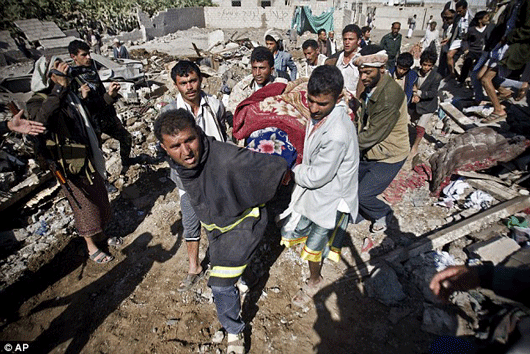
Local Editor
It should not have required the massacre of more than 140 people at a funeral for Washington to review support for the Saudi-led coalition’s brutish war in Yemen. There have been numerous other massacres that should already have prompted action.
In their bid to pummel Ansarullah revolutionaries into submission and restore an ousted ally to the capital, Sana’a, the Saudi air force has struck hospitals, weddings, schools, mosques and marketplaces, according to a report to the UN Security Council.
"These attacks undoubtedly contravene international law. They also contribute to creating the conditions for a famine."
In the shadow of far deadlier wars on Syria and Iraq, the war on Yemen failed to garner much international attention. Last weekend’s carnage in Sana’a and subsequent attempts by Ansarullah revolutionaries to strike US warships with missiles, may change that. At the very least, the potential for blow back - in the Middle East and beyond - must now be dawning among Saudi Arabia’s western allies.
Nor can the Saudis point to much progress in achieving their aims - to restore a client regime next door. They have tried to control Yemen over the decades by co-opting a shifting constellation of actors and tribes. Along the way they made little effort to assist the Yemenis in nation-building, or address chronic underdevelopment in a country running out of water, the poorest of the poor.
For the US, maintaining an alliance with the world’s top oil producer is fraught with complications at the best of times. It has become more so since Washington brokered the nuclear deal with Iran, to Saudi Arabia’s alarm, and amid growing support in Congress for a tougher line on the kingdom’s role in promoting intolerant forms of Islam.
The US is refueling jets and providing munitions and training for the Saudi-led coalition. This should now be made conditional. Britain, and France, both major suppliers of weapons to Riyadh, should stand alongside the US in pressing for a ceasefire and the deployment of UN-mandated peacekeepers.
Source: Financial Times, Edited by Website Team